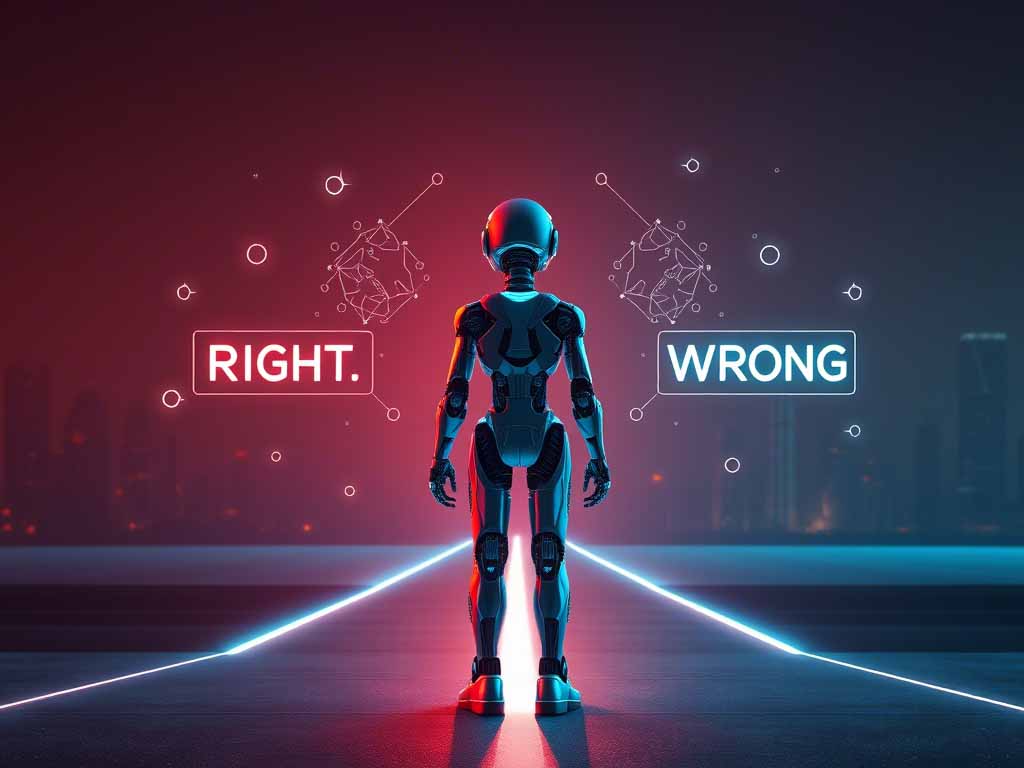Technology is moving fast. Faster than most of us expected, honestly. Every time you blink, it seems like there’s a new advancement, and one area that’s raising eyebrows is the use of artificial intelligence in decision making. We’re no longer just talking about smart assistants helping us play music or check the weather. We’re now staring down a future where algorithms might decide who gets a loan, who gets hired, or who gets flagged as a threat.
So, this leads us to a crucial question: can we trust machines to make ethical decisions? And if we do, what safeguards must be in place?
Let’s unpack it all — no jargon, just real talk.
What Machine Decision Making Really Means
Let’s be clear — when people say machines are making decisions, they’re not talking about a robot sitting in a chair pondering morality. What’s happening is more technical, but just as impactful.
Imagine this: a bank uses an algorithm to process thousands of loan applications. Based on the data it’s trained on, it determines whether someone is likely to repay their debt. It does this without emotion, without context, and without really understanding anything.
Now, this kind of decision-making is efficient. It saves time, cuts costs, and, in theory, removes human bias. But here’s the thing — that only works if the data feeding the system is clean, fair, and diverse. And guess what? It often isn’t.
When Bias Hides Inside the Code
One of the biggest problems with AI isn’t the tech itself — it’s what we put into it. These systems learn from data, and that data usually reflects our real-world choices, history, and mistakes.
Let’s take hiring software as an example. Suppose the system is trained on past hiring records from a company that historically favored certain demographics. Even without being programmed to discriminate, it’ll likely continue the pattern, filtering out equally qualified candidates just because they don’t fit the profile it’s been taught to prefer.
That’s not a system failing — that’s a reflection of our past choices embedded in code.
Who Decides What’s “Fair”?
Here’s where it gets even trickier.
Fairness isn’t a universal concept. What’s fair in one culture might not be considered fair in another. And when algorithms are developed in one part of the world and used in another, this mismatch can cause real problems.
Should an AI treat every individual the same way? Or should it consider social or economic disadvantages? Should it favor efficiency or focus on compassion?
People debate these questions all the time. Machines? Not so much.
Accountability: When Machines Get It Wrong
Now let’s say an AI tool denies someone critical medical treatment. The hospital says it followed “AI recommendations.” The patient suffers. Who’s responsible?
This is where things start to feel murky. Was it the software engineer? The healthcare provider? The company that sold the system? Or was it just… no one?
In the past, decisions like these came with a clear line of accountability. But with AI, blame becomes harder to pin down — and that’s dangerous.
We can’t let responsibility become a ghost.
Black Box Problems: Can We Trust What We Can’t See?
Many AI systems — especially the ones that use deep learning — are so complex that even their creators struggle to explain how they arrive at specific conclusions.
It’s like asking a genius to explain their gut instinct — they just “know.” That’s fine for a chess game. Not so fine when deciding whether someone gets surgery or prison time.
If we want people to trust AI, those decisions need to be explainable, transparent, and, ideally, challengeable.
No, Algorithms Aren’t Emotionless Saviors
There’s a belief out there that machines will somehow be more fair because they don’t have emotions. But that’s a huge oversimplification.
Machines may not feel, but they reflect. And if what they reflect is biased, they’ll make bad choices — just faster, and at scale.
If anything, emotionless machines might double down on unfair decisions, because they won’t even realize when they’ve crossed the line.
Ethics Isn’t the Same Everywhere
This isn’t just a tech issue — it’s a global conversation.
Different countries see things differently. In some places, AI-powered surveillance is used to maintain order. In others, it’s seen as a threat to freedom. What’s ethical in one place might be unacceptable in another.
This is why global cooperation on AI ethics is so hard. Everyone brings their own values to the table — and no one agrees on where the table should even be.
What We Can Actually Do About It
The good news is that some people are thinking deeply about these issues — ethicists, developers, even governments.
There are several good starting points for more ethical AI:
- Human Oversight: Critical decisions should always include a human review.
- Bias Testing: Systems should be audited regularly for signs of discrimination.
- Transparency: Users should know how and why a decision was made.
- Diversity in Design: The teams building AI should reflect the diversity of the world they’re building for.
Most importantly, AI shouldn’t be rolled out just because it “works.” It should be used because it’s right.
Final Thoughts: The Human Hand on the Switch
Here’s the truth. Machines don’t have morality. They follow patterns. They can’t weigh empathy against logic or context against rules. Only humans can do that.
So while AI will undoubtedly shape the future, we still shape the AI.
If we care about ethics, we can’t let go of the wheel.
And if we do… we might not like where we end up.



